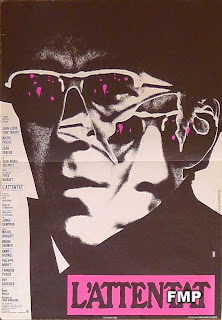 Originally filmed in 1971 but not released until 1985 thanks to those awesome censors that the USSR had in place during this time, Alexei German's sophomore film deserves to be seen no matter when. Vladimir Zamanski is Lazarev, a Russian soldier who, at one point towards the end of the war, was captured by the Germans and forced to work with them. A unit of partisan soldiers- comprised partly of war weary veterans and fresh faced village boys- recapture Lazarev and place him under arrest, not sure whether he can still be trusted. It's only when the unit is faced with the huge task of re-routing a train supply line that they place their faith in Lazarev's new found patriotism. Filmed in German's usual method of stark black and white, "Trial On the Road" expresses both the physical and psychological pressures on men during World War 2. The dynamic between Lazarev and the partisans is presented from both vantage points. We can understand how each side is supremely distrusting of the other. And right up to the violent ending, we're never quite sure if Lazarev will be true to his intentions of helping the partisans or not.
Originally filmed in 1971 but not released until 1985 thanks to those awesome censors that the USSR had in place during this time, Alexei German's sophomore film deserves to be seen no matter when. Vladimir Zamanski is Lazarev, a Russian soldier who, at one point towards the end of the war, was captured by the Germans and forced to work with them. A unit of partisan soldiers- comprised partly of war weary veterans and fresh faced village boys- recapture Lazarev and place him under arrest, not sure whether he can still be trusted. It's only when the unit is faced with the huge task of re-routing a train supply line that they place their faith in Lazarev's new found patriotism. Filmed in German's usual method of stark black and white, "Trial On the Road" expresses both the physical and psychological pressures on men during World War 2. The dynamic between Lazarev and the partisans is presented from both vantage points. We can understand how each side is supremely distrusting of the other. And right up to the violent ending, we're never quite sure if Lazarev will be true to his intentions of helping the partisans or not.
Like the best war films of Russian cinema, "Trial On the Road" excels in presenting the elemental nature of war. Sight and sound are magnified aspects of the experience, such as the hissing noise a spent machine gun makes when it hits the snow covered ground or the completely terrifying image of a German death patrol suddenly emerging in front of a partisan soldier during white out conditions. Filmmaker German ensures these small details are etched into our memory and "Trial On the Road" creates a host of them.









